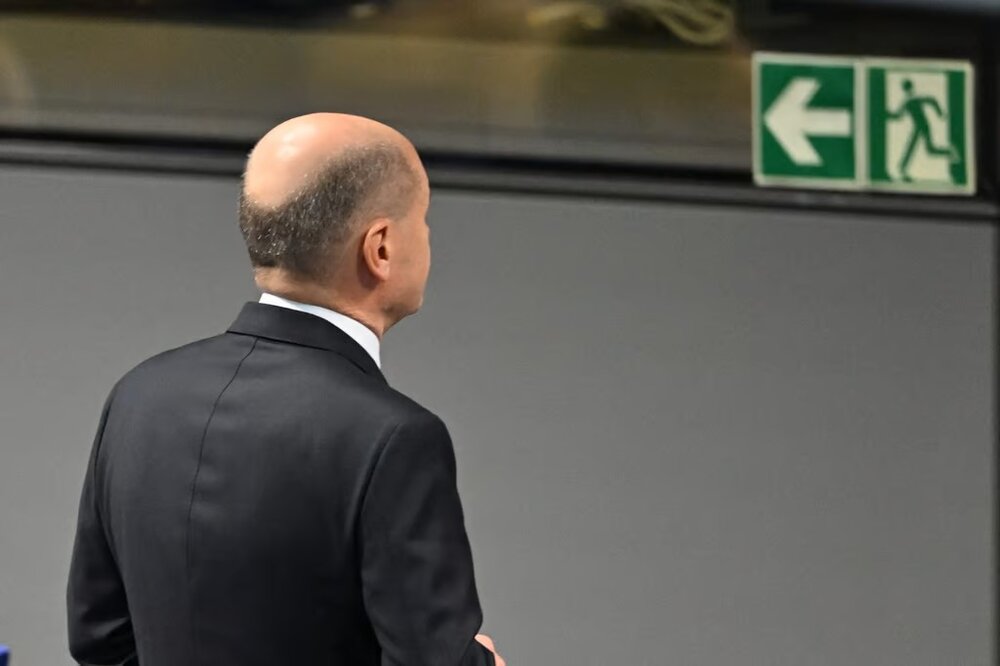Schultz failed to win a vote of confidence in the German parliament
The German chancellor received a vote of no confidence from the country’s parliament so that the country can prepare for early elections in February.
According to RCO News Agency, the majority of the German parliament with 733 representatives voted no confidence in German Chancellor Olaf Schultz.
According to Politico, Schultz’s vote of no confidence in the House has weakened his fragile grip and paved the way for an early election in which Schultz is expected to lose.
The vote was a necessary step in the run-up to Schulz’s planned snap election, which became inevitable after his three-party coalition collapsed last month over bitter disagreements over the German government’s budget.
In November, Schultz effectively ended the ruling coalition in the country, which had been in power since 2021, by firing Christian Lander, the former German finance minister. This coalition was made up of social democratic parties led by Schultz, the “Free Democratic Party” and the “Green Party”.
Lander was a member of the Free Democratic Party. The three-party coalition of the German government faced problems due to differences over the budget and economic policies.
“In such an election, citizens can determine the political direction of our country,” the German chancellor, who belongs to the center-left party, told parliamentarians during his speech before the vote.
While Schultz’s Social Democrats (SPD) group in parliament confirmed its confidence in the German chancellor, the Greens, with whom Schultz currently governs in a minority government, abstained in favor of the far-right Alternative for Germany (AfD). AfD) could not achieve its desired result, which is to keep Schultz.
A small number of the 76 lawmakers of the far-right Alternative for Germany party had already announced they would vote no confidence in the German chancellor, fearing that his potential successor, Friedrich Merz of the center-right Christian Democratic Union (CDU) party, could lead Germany to stronger support for Ukraine enters the war against Russia.
Schultz is scheduled to meet with German President Frank-Walter Steinmeier on Monday afternoon and is expected to propose dissolving the Bundestag, which the president can do within 21 days. Elections will be held in 60 days.
Ultimately, the decision on when to hold the election rests with the German president. But after the heads of the main parliamentary groups agreed to hold a federal election on Sunday, February 23, 2025, Steinmeier is expected to stick to that timetable.
This is the sixth time in the history of Germany that such a vote has been held and it is the fourth time that the president of the country fails to receive a vote of confidence from the parliament.
The last time the German chancellor lost a vote of confidence was in 2005 during the time of Gerhard Schröder, the then Social Democratic chancellor, after which Angela Merkel took over the leadership of Germany and did so for 16 years. Then he continued.
end of message
News>RCO NEWS
RCO
















